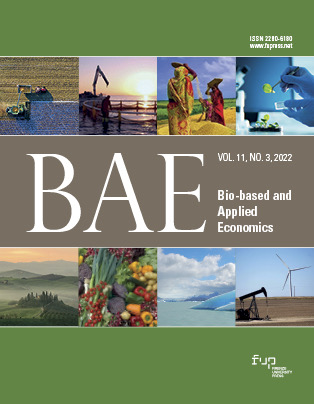Bio-based Business Models: specific and general learnings from recent good practice cases in different business sectors
Published 2022-11-04
Keywords
- Bioeconomy,
- Business Modelling,
- Business Model Canvas,
- Bio-Based Industry,
- Business Readiness Level
How to Cite
Funding data
-
Horizon 2020
Grant numbers 818351 -
Topconsortium voor Kennis en Innovatie
Grant numbers EU-19038 (BO-57-101-001)
Abstract
Business models can be a perfect tool to meet the challenges in highlighting the competitiveness and sustainability potential of bio-based solutions, and facilitating primary producers to benefit from the opportunities offered by bioeconomy. In this work six concrete bio-based good practices that have succeeded in progressing from early ideas to products on the market were analysed. These examples pose new insights that can be used by a wide range of experts and stakeholders for the analysis of benefits and challenges of value chains in the bio-based economy sectors. It is concluded that the traditional Business Model Canvas needs to be extended with additional factors related to sustainability and business ecosystem. In order to establish a practical framework promoting economic viability of bio-based business cases, the importance is highlighted for adjusting the exclusive focus on Technology Readiness Levels by introducing levels reflecting business or market readiness.







